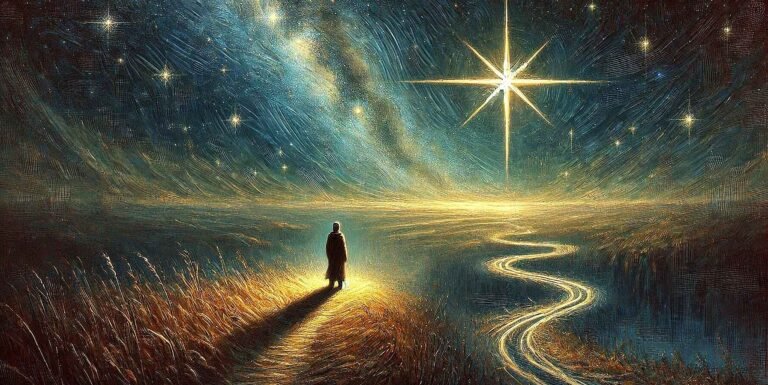Self-Discovery Questions: Philosophy and History

Self Discovery questions are many, yet the answers to them can be only found in philosophy and our history.
Self Discovery questions are nothing more than an attempt to separate the self from the animal world in the hope of overthrowing God from its throne.
“Knowing yourself is the beginning of all wisdom.”
Aristotle
The problem of the inner self and all the arising questions are primordial. Since the dawn of humanity, nothing we knew for sure except toiling for daily survival, happiness was just a dream.
Self Discovery questions did not exist … The spiritual awakening problem did not exist … Soul searching was an unknown concept. Sweat and tears were the only surety in life.
No wonder that with such a long history of suffering, we invented a notion of happiness. It is why we are in this never-ending pursuit of happiness. Yet, no human has yet found happiness in the outside world. It is why many wise men started to look for happiness inside. Why many believe that asking Self Discovery Questions is the key to understanding of what happiness truly is.
Now we enter into the domain of my favourite topic: Philosophical Self Discovery questions. Let’s begin our soul searching journey.
Now we enter into the domain of my favourite topic. It is why I want to keep it short. Let’s begin!
QUESTIONS FOR SELF DISCOVERY: PHILOSOPHY OF SELF DISCOVERY
In philosophy and psychology the term “self” denotes knowledge of one’s own mental states, including beliefs, desires, and sensations. It is sometimes also used to represent knowledge of the persistent self: its ontological nature, questions for self discovery, conditions of identity, and its characteristics. Starting at least with Descartes, most philosophers were convinced that self-knowledge is essentially different from the knowledge of the external world, including other people’s thoughts.
However, there is no consensus on what distinguishes self-knowledge from knowledge in other areas. In part because of existing disagreements, philosophers have supported competing theories of the formation of self-knowledge. They had a significant impact on defining the boundaries of the sphere of mental content, the ontology of the cognitive and personality identity. They are also impacted the questions of self-discovery.
Western Philosophy and Questions for Self-Discovery
The first in western philosophy mention of the importance of asking Self Discovery questions for the development of personality belongs to the ancient Greek philosopher Plato, according to the legend of which, in the 6th century BC, among the seven wisest sayings carved on the pillar of the temple of Apollo of Delphi, was the call “Know thyself.”
Throughout the entire documented history of human existence, philosophers and sociologists have dealt with the importance of Self Discovery questions, self-knowledge and its goals, means, and methods. Eastern philosophical and religious movements also played an essential role in influencing our strive for self-study, our desire to ask questions for self discovery.
History and philosophy of self-knowledge and personality
Immanuel Kant noted that the factor that a person “can have an idea of his self infinitely raises him above all other beings.” Thanks to the understanding, and self-determination of the essence of the subject, a person’s personality is formed, which distinguishes him from animals and allows self-fulfillment as an individual.
The need for Self Discovery questions, self-awareness of a person as an individual has led and is leading to the development of diverse philosophical trends, questions for self-discovery, practices and trends both in official science and world religions and in the widespread public hobbies at all times, practices and training that call to “look into oneself,” “know oneself.” Regardless of the foundations and effectiveness of such practices, their common goal was relevant throughout almost the entire history of mankind – from Ancient Greece and Rome to our times.
Being one of the founders of dualism, Hegel noted the presence of the most pronounced duality of self-knowledge as a process in which the object of analysis, regulation, and correction is also the subject performing these actions. A high level of self-regulation is based on a full-fledged, and constantly conducted process of self-study, assessment, and personality change in accordance with the required conditions, which is not only a psychologically quite energy-consuming process but also requires maximum honesty towards oneself and others as well as the ability to separate subjective and object actions in relation to oneself, ability to ask honest questions in the process of self-discovery.
Asking Self Discovery questions is not only a tool for self-development and regulation but also an important factor in the formation of relationships in society. Social self-knowledge, the definition of group, national differences – a method of regulation used in the social and political spheres of government.
Self-knowledge concept
Self Discovery questions are complex. External experience and internal life interact. Their influence on each other is equal. Awareness of self-concept. Knowing yourself, you know all others. Each person will become more understandable for you. You will find logic in the world order and the order of things. Then for you, the words of Goethe will fill with a new meaning that “a man knows himself only to the extent that he knows the world.” Think about it. External and internal are one. You are part of the Universe, and at the same time, you are a microcosm.
Schools of Western Philosophy
Here are a few Greek-derived Western Philosophies that I believe are of great importance if you want to know yourself:
Pragmatism
Existentialism
Phenomenology
Hermeneutics
Analytical Philosophy
Heck, I will even add old Russian Nihilism
Modern Western philosophy is not unambiguous in content. It includes a variety of concepts and directions: the irrationalism of A. Schopenhauer and F. Nietzsche, the dialectical materialism of K. Marx, the positivism of O. Comte, existentialism, phenomenology, hermeneutics, pragmatism, postmodernism, etc. They all asked questions for self discovery. Let’s dwell on them in more detail.
Take as an example Karl Marx.
He was one of the greatest philosophers. Yet the legacy that his followers left makes many people shiver upon hearing this name.
Marx, he was a philosopher, economist and sociologist of the 19th century. In his works, Marx formulates his famous doctrine – dialectical materialism. Unlike Hegel, he says that dialectics should help explain the real world from itself and not from abstractly derived concepts. The main thing is not to explain the world but to change it. Philosophy is the spiritual weapon of such a change.
The most interesting is the philosophical views of Marx on society. Marx believed that spiritual relations depend on material ones and not vice versa (not consciousness determines being, but being determines consciousness). In social production, people, regardless of their will, inevitably enter into production relations, which form the “basis” of society. They are based on the attitude toward ownership of the means of production. Basic relations, in turn, affect the “superstructure,” which consists of political, legal, religious, moral and other relations of people. Since the basis of society is constantly changing, the production itself changes, then the superstructure of society also changes, and questions for self discovery change also.
The totality of historical relations between the base and the superstructure is called “socio-economic formation.” In the most general form, three formations are distinguished in the concept of Marx: pre-class, class and classless. Society naturally and naturally moves towards a classless formation, i.e. to communism.
Here is one of my favourite philosophers:
in my humble opinion he was able to answer Self Discovery questions the best.
Arthur Schopenhauer, in his famous work “The World as Will and Representation,” acts as the successor of the work of Kant. He believes that the world is not based on the principles of reason, there is no reason in the world, but there is a will. This will must be understood broadly – not as a quality of the human soul but as a kind of “impulse” that exists in nature and society. In the animal world, this “impulse” manifests itself as a desire to preserve life in the physical world – as attraction, gravity, magnetism, in society – as the will of states, races, peoples and individuals.
Will is blind, has no rational purpose, and is irrational. Being groundless and unreasonable, it gives rise to all phenomena and processes in the world, acting as an aimless need to survive.
At the human level, will appears in the form of passions: lust for power, vengefulness, sexual love, etc. Since the will spread in the world has no laws, Schopenhauer comes to pessimistic conclusions (I disagree here, they are rather logical conclusions) about the powerlessness of man and the hopelessness of his attempts to learn not only the laws of society nor the same opportunity to know the world. He also left questions for self discovery mainly unanswered.
He believed, in general, human life is a hopeless long-term extinction and grief. The meaning of life is to understand that peace is sorrow. However, a person can live with dignity if he does not succumb to the passions caused by the will.
However, Friedrich Nietzsche considered himself a student of Schopenhauer and shared his irrational view of the world. The world, Nietzsche believes, is life. A blind will acts in him, which at the human level manifests itself as a “will to power. “Man embodies the “will to power.” It is she who is the basis of self-affirmation in art, morality, religion and science.
In his works, Nietzsche provides some answers to Self-Discovery Questions and understanding of human morality, which is extremely relative. Truths of morality, according to the German thinker, do not exist. However, for moral actions, i.e. actions, there is a criterion. This criterion of “practical morality” is the degree to which a person approaches power. No common morality “for all” is possible. What is moral for some is not moral for others, and vice versa.
Let me stop here, as I can yap forever on this topic. This article is too general to exploit for philosophical content.
Hinduism and Self Discovery
In Hinduism, Self-Discovery Questions are all about Atman.
In a nutshell, what is Hinduism? Hinduism is a certain set of philosophical and religious teachings about our world, about the afterlife, about spirits and deities.
The main idea of Hinduism is self-knowledge, self-enlightenment and the discovery of spiritual principles in oneself for subsequent merging with God (Brahman).
Of course, everything sounds quiet, normal and logical. And, it seems, is the standard, for all world religions, the qualities that a person must possess in order to worthily end life on our planet. But nevertheless, not everything is so simple. I propose to delve a little into the roots of this doctrine, and into questions for self discovery.
Atman is something in which everything exists, has the highest value, and permeates everything that is the essence of everything, bliss and cannot be described.
Buddhism and Self Discovery
Buddhist, is a religious, philosophical teaching of spiritual awakening, bodhi, arising around six’ century in Ancient India. This teaching can be a great tool for anyone who is on a soul-searching journey and looking for the answers to Self-Discovery Questions. The doctrine’s founder is considered Siddhartha Gautama, who later received the name Buddha Shakyamuni.
The followers of this teaching themselves called it the word “Dharma, “Law, Teaching or “Buddhadharma,” Teaching of Buddha. The term “Buddhism was actually coined by Europeans in the 19th century. At the present time, some scholars and Buddhist leaders define Buddhism as “the science of consciousness.”
It is believed that Buddhism is one of the oldest world religions, recognized as the one that connects most different people with very different traditions under one umbrella. Buddhism allows understanding the great culture of the East – the Indian, the Chinese, not to mention much about the cultures of Tibet and Mongolia, permeated by the spirit of Buddhism to their last foundations.
Jainism and Questions for Self Discovery
India is rich in various ancient teachings, one of which is Jainism, the most influential and organized dharmic religion dating back to around the sixth century BC. Kshatriya Vardhaman, or Jina Mahavira is generally considered the founder of Jainism. Jina is Sanskrit and means winner.
Each being, in the mind of the Janists or Jains, is an individual and eternal soul, initially possessing infinite knowledge, strength and happiness, but only freed from samsara and karma, it can return to this state of divine consciousness, pure omniscience.
The way to achieve this is through asceticism, tapas (in orthodox Jainism through a very severe asceticism), the development of wisdom and self-control.
Taoism and Self Discovery
China has always been known as the center of philosophical thought, the birthplace of ancient teachings. Along with Confucianism and Buddhism, Taoism had a huge influence here – we want to talk about it today.
Taoism is a teaching that has spread in China. It is considered one of the oldest in the world – the period of its origin dates back to about the 5th century BC.
Taoism is called a religious-philosophical view because it has absorbed the features of both concepts: philosophy with its inherent study of being, knowledge, the Universe, philosophical treatises – which relies on faith in higher powers and presupposes a certain dogmatism, as well as indispensable spiritual practices.
I personally do not believe that Taoism is providing good answers to Self-Discovery Questions.
Sufism and Self Discovery
For a long time, Sufism has offered individuals a way to prompt this “extraordinary objective” of self-acknowledgment. Sufism is an assortment of lessons that appeared in a wide range of structures, yet with one shared objective: to beat the typical individual limits and flaws of discernment.
Sufism isn’t only an assortment of speculations or theories; different sources have depicted it as a way of affection, a way of reflection administration and a way of information. On account of the numerous appearances of Sufism, a methodology can be found to assist with beating the scholarly and passionate snags to the otherworldly advancement of the person.
The religious teaching of Sufism sets as its goal the purification of the soul and self-knowledge, both through the practice of asceticism and through the practice of prayers, rituals and faith in the one God.
An example of the Sufis was the prophet Muhammad, who led an ascetic lifestyle and was not interested in worldly affairs and spent most of his time in prayer and fasting.
The essence and essence of Sufism is union with all existence, which cannot be approached intellectually. It is necessary to fall in love with existence. And here, there is no system but only love and trust in deep existence.
Early Sufism is based on imitating the prophet Muhammad and following his rules and regulations. In the same way, Sufis reflected on the essence of the Koran and spent their lives in prayers and fasting, renouncing the mundane. Also, one of the main ideas of early Sufism was the purification of one’s soul through the practice of poverty and repentance.
Thus, the Sufis wanted to get closer to God, showing selfless love and service in prayers and fasting, which is also typical for early Christianity and for almost all Christian saints and ascetics of Christianity and almost all other religions of the world. This is how the theory and practice of merging or dissolving oneself in God were formed in the philosophy of Sufism.
Jewish Mysticism and Question for Self Discovery
Jewish philosophy is an interpretation of Judaism, Jewish history, culture, etc., through general philosophical concepts from the standpoint of identification with the Jewish people. To the extent that Jewish philosophy deals with the interpretation of the Jewish religion and its precepts, it can be viewed, on the one hand, as a continuation of the biblical and rabbinic traditions, and on the other, as part of world philosophy in an attempt to answer questions for self discovery.
In contrast to the original biblical, Talmudic and rabbinic traditions, Jewish philosophy arose and developed due to the participation of Jews in the culture of the surrounding peoples, of which philosophical thought was an integral part. Jewish philosophy includes general philosophical works written by Jews in Hebrew, Arabic, and other languages at the end of the Middle Ages and various attempts to comprehend Jewish life in terms of secular philosophy undertaken by Jewish thinkers of the New and Modern times. Representatives of general philosophy, Jews by origin, in whose work specific Jewish problems are not reflected, do not belong to Jewish philosophy.
There is always the Kabbalah. The word “Kabbalah” itself has the following translation – “receiving” or “receiving.” It is believed that when a person comes into contact with this teaching, he receives and receives innermost and hidden knowledge.
Christianity and Self-Discovery
According to Christianity, self-knowledge is another stepping stone on man’s path to God. Knowing Self is knowing God. It leads to a correct knowledge of oneself and to the correct alignment of one’s image in the image of God in order to be able to meet our Creator. Many people today consider self-knowledge to be very important and make great efforts for this. And it always has been important in the Christian belief system.
Please let me stop, as I can chat forever on this topic of philosophy and religion and the questions for self discovery they cover. I repeat, this article is too general to exploit it for philosophical content.
QUESTIONS FOR SELF DISCOVERY: THE HISTORY OF SELF-DISCOVERY
Where to search for answers to Self-Discovery Questions if not in our history. Standing on the shoulders of the Giant does help.
According to the legend told by Plato in the dialogue “Protagoras,” the “seven wise men” of Ancient Greece – Thales, Pittacus, Bias, Solon, Cleobulus, Mison and Chilo having come together, they dedicated Delphic as the beginnings of wisdom “their sayings, including” Know thyself. The sayings were carved on the column of the ancient Delphic Temple.
The philosophers of Antiquity were the first to see the beginning of philosophy in Self-Cognition. As I mentioned before, according to legend, the commandment “know yourself” is the fruit of the joint conclusions of the seven great sages of Ancient Greece.
The same problem became the core of Socratic teaching. According to Socrates, constant turning inside one’s own “I” is a way to maintain a harmonious balance of the soul and body. And the one who does not know himself is not able to conduct business, to become happy, to make others happy.
Different aspects of self-knowledge and interaction of a person with the world were developed by representatives of different schools of thought. The medieval Father of the Church, Blessed Augustine, believed that immersion in oneself is necessary to search for traces of God and not individual traits of one’s personality. In general, in religious philosophy, self-knowledge was recognized as impossible without the practice of numerous religious teachings, ascetic asceticism, and the mystical experience of spiritual prayer.
The topic of self-concept and Self Discovery Questions was considered and discussed in the writings of the founder of the Taoist tradition, Lao-Tzu, Buddhist sages, and Confucian and Arab philosophers. But representatives of Western and Eastern philosophical schools approached the study of the issue from different points of view.
From the standpoint of both traditions, the “I” perceives itself as if from the outside, going beyond its own limits. But the East regards a person as a part of the world, while the West associates self-knowledge with the autonomy of the “I” from the environment.
René Descartes, a representative of Western applied philosophy of modern times, considered the problem of self-knowledge as a problem that could be scientifically posed and solved. The English theoretical philosopher J. Locke interpreted self-understanding as the observation of one’s own experience. But no philosophical school has paid much attention to the question of self-knowledge as German classical philosophy. The most cited and respected are the works of Kant, Fichte, Hegel, and Schelling.
In the 20 and 21st centuries, two interrelated sciences that study of Self Discovery Questions e have become relevant: psychology and philosophy. And a person’s awareness of his being is recognized as a component of his existence and development.
Question for Self Discovery In Science History
It is valid, at the same time, just since the final part of the twentieth century, savants, educators, and analysts have started to effectively investigate the issues related to the embodiment of the character, the cycles of its arrangement, which was brought about by the developing job of the person throughout the entire existence of human civilization, the exemplification of society.
To explain the substance of self-knowledge, the thoughts that have been collected by instructional methods, brain research and different sciences are significant. How about we go to the historical backdrop of science.
Maybe one of the principal references to the issue of self-concept should be visible in the progress of old savants.
The exemplary articulation of Socrates, “I realize that I don’t know anything,” is known, which has come down to us in the renowned composition of Plato, “The Apology of Socrates.”
In Apology, Plato portrays how Socrates, looking for astuteness, goes to artists, craftsmen, government officials to ask who is the smartest, surprisingly. The Oracle answered that the shrewdest of all, almost certainly, Socrates, and the last option was really stunned that he was prepared to question the heavenly words – to ask questions for self discovery.
Really at that time, did Socrates comprehend the significance of Apollo’s words: he is similarly pretty much as oblivious as any remaining individuals; however, he is significantly smarter than they are on the grounds that he knows about this very obliviousness. Be that as it may, what is valid insight and what is subject from genuine knowledge’s perspective?
The solution to this inquiry was demonstrated by Socrates himself: “Truth, goodness and magnificence are the main significant subjects of study and information, without which an individual, regardless of how proficient he might be in different regions, is just a simpleton.” And exactly because of the way that any remaining individuals, not knowing – such as himself – what, indeed, these reality, goodness, and excellence are, simultaneously don’t understand the actual significance of such information and subsequently don’t notice such critical hole.
Socrates arrived at the resolution that he is more shrewd than them.
This is the genuine importance of the Socratic awareness of his obliviousness: it was anything but an unassuming or modest, more than pride, affirmation of his newness to some part of the information, as is standard to think, however, the pompous triumph of the human psyche is an entire insurgency in the arrangement of philosophical reasoning.
The ethical side of the individual was hence positioned at the focal point of the Universe, and its investigation in all positions and connections was declared the most significant and significant thing in the field of our intellectual movement. All past ways of thinking, beginning from Thales, managed cosmological issues, presently examining the field of science, then, at that point, physical science, then, at that point, brain research for the way to understanding the Universe, its laws, its starting point, its overall significance.
Socrates is the first – with the exception of the endeavours of the Eleatic school, more significant all things considered, rather than according to the perspective of the improvement of thought – he started to demand the investigation of the human soul as the main object of our insight – and this is his eternal legitimacy to science.
As per Kant, the intricacy of self-information lies in the way that here the object of information is indistinguishable from its subject. Be that as it may, this is anything but a total personality since human self-information adds to the investigation of the embodiment of things, nature, in which the psyche sees the presence of the insight of an undetectable nature. Information on the mysteries of the Universe should lead an individual to the possibility that material presence debilitates the quintessence of being. The genuine subject of comprehension is the otherworldly structure, the inward importance.
In the idea of Kant, we additionally track down enchanted snapshots of Self according to one perspective. Uncovering the profound depth of inner self, while an individual, continuously uncovering self, is renewed, different version. Self-information, which uncovers his embodiment in an individual, is the snapshot of his subsequent birth.
An immense leap forward in the investigation of the embodiment of self-knowledge happened with the development of scientific analysis. Delegates of various bearings of therapy, for example, Freud, Adler Jung, contributed vastly to our understanding of the inner self.
Historical Examples of Self Discovery
Here are a few vivid examples of how self-discovery acts as an engine of spiritual, cultural, scientific and technical progress.
Of course, the first that comes to mind is Prometheus. Icarus, and Odysseus, al because I love mythology. But what about Buddha, Jesus of Nazareth, Muhammad ibn Abd Allāh – seems too spiritual? Perhaps Dalai Lama, Alexander Solzhenitsyn, Mahatma Gandhi, Nelson Mandela, Eleanor Roosevelt, Martin Luther King? Perhaps too ambiguous?
Think of people who helped you in life then! I urge you to begin the process of self discovery, help yourself find true happiness in life and assist others. Start asking questions for self-discovery.
SUMMARY
“The journey of a thousand miles begins with a single step.” “They,” say it was Lao Tzu who reminded us that to end, we must begin.
And I believe that for one who desires life’s happiness, one must start with self discovery. It is a very long journey. It is a process that involves lots of digging deep into the essence of your being, deep into the core of your soul, where all the “demons” are lurking.
So, why do we need to really know ourselves? Simple as simple can get – The path to self knowledge is the only way to know what happiness is, to even have a taste of it
Regards,
Val





